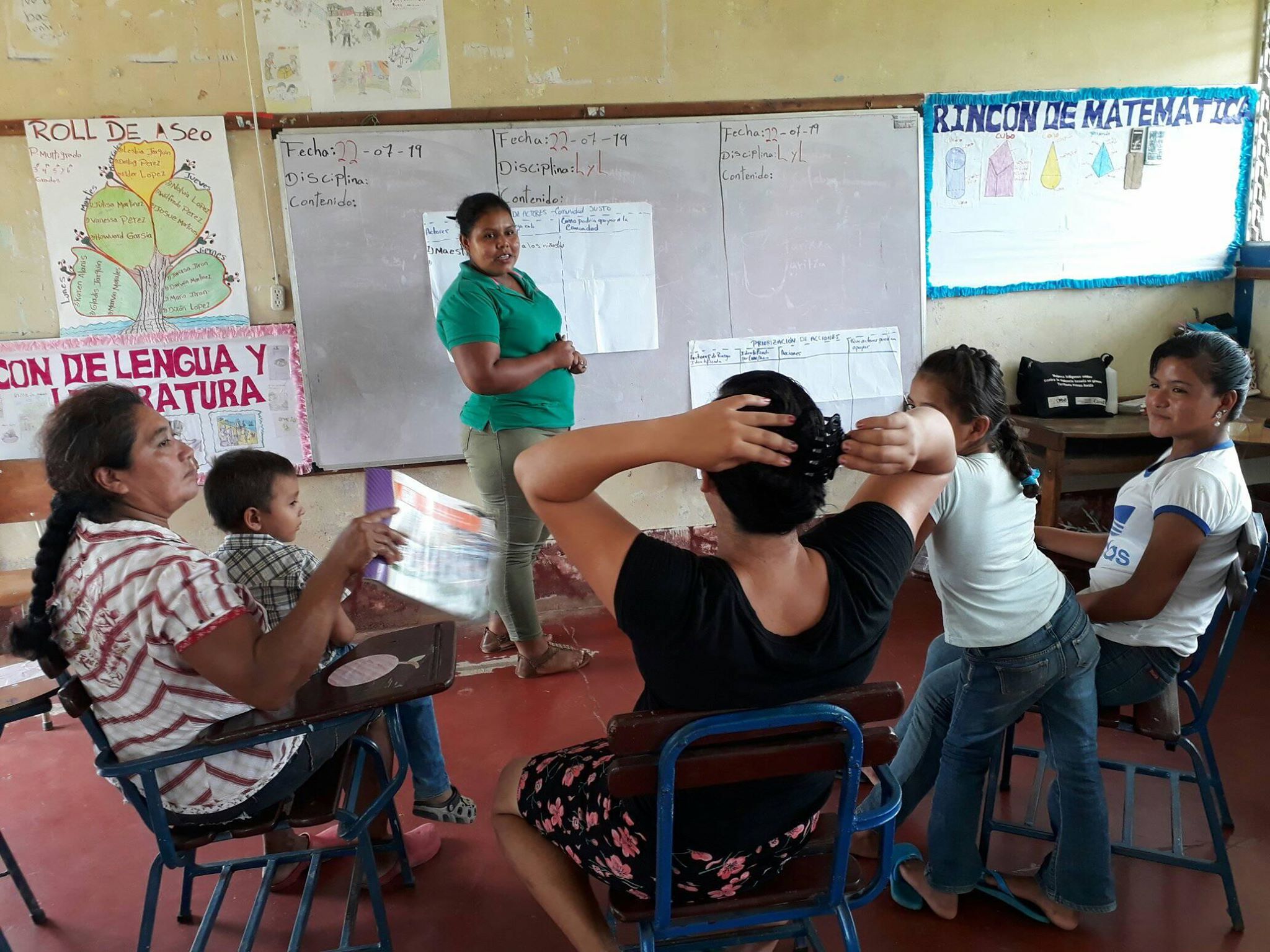
Intercultural teaching-learning community spaces
By: Neylin Calderón
URACCAN, from its institutional philosophy and cross-cutting axes, provides accompaniment to the indigenous, Afro-descendant and mixed-race territories of Nicaragua's Caribbean Coast, creating intercultural community spaces involving Costa Rican families, raising the dialogues of knowledge that contribute to citizen security from childhood, adolescence and youth.
Under this approach and within the framework of the project; "Intercultural teaching-learning community spaces in the municipalities of Puerto Cabezas and Prinzapolka", the Institute for Linguistic and Cultural Promotion (IPILC-URACCAN), of the Bilwi campus, in coordination with the Community Action for Reading and Safety (CARS) program, under funding from the United States Agency for International Development (USAID), they work with children in the school/community diagnostic process to address safety issues such as gender-based violence and human trafficking, with 5 elementary schools in Prinzapolka and 5 being involved in Puerto Cabezas.
Entities involved
 This diagnosis aims to present to the commission of analysis of each educational center the methodological process for the elaboration of the school/community diagnosis, under the security themes, the ten schools benefiting from the project in the municipality of Prinzapolka and Puerto Cabezas, are: House of the Brave, January 4, Casa de las Palmeras, Kuri Tangni and Flor de Pino (Prinzapolka); while in Puerto Cabezas, doris Rob Gabay, Julio Bucardo, New Jerusalem 1, Emanuel Mongalo Rubio and Pedro Bello schools.
This diagnosis aims to present to the commission of analysis of each educational center the methodological process for the elaboration of the school/community diagnosis, under the security themes, the ten schools benefiting from the project in the municipality of Prinzapolka and Puerto Cabezas, are: House of the Brave, January 4, Casa de las Palmeras, Kuri Tangni and Flor de Pino (Prinzapolka); while in Puerto Cabezas, doris Rob Gabay, Julio Bucardo, New Jerusalem 1, Emanuel Mongalo Rubio and Pedro Bello schools.
During the diagnosis of the project, it was possible to identify risky situations that children face within their school and community. Based on these results, the actions to be carried out have been established, to minimize risks and articulate the processes that should be followed to ensure the actions embodied in the diagnosis, in addition work is carried out on the construction of actions that will contribute to the reduction of cases of risk situations in schools.
Articulated actions
Among the actions under construction are the possibility of meeting with parents of families to raise awareness of the issues of home abuse (abuse and Bu
llying);
talk with children to strengthen knowledge and attitudes, as well as coordinate with the National Police to ensure surveillance and patrolling at the time of children's entry and exit.
This process was under the accompaniment of the technicians of the CARS-URACCAN project, Erwin Kitler, Guillermo Thomas, Eda Narváez and Zorayda Méndez, in the coordination and responsibility of Master Keith Narváez, project advisor CARS-coordinator external cooperation of URACCAN, Bilwi enclosure.
- Log in to post comments
- 16 views
